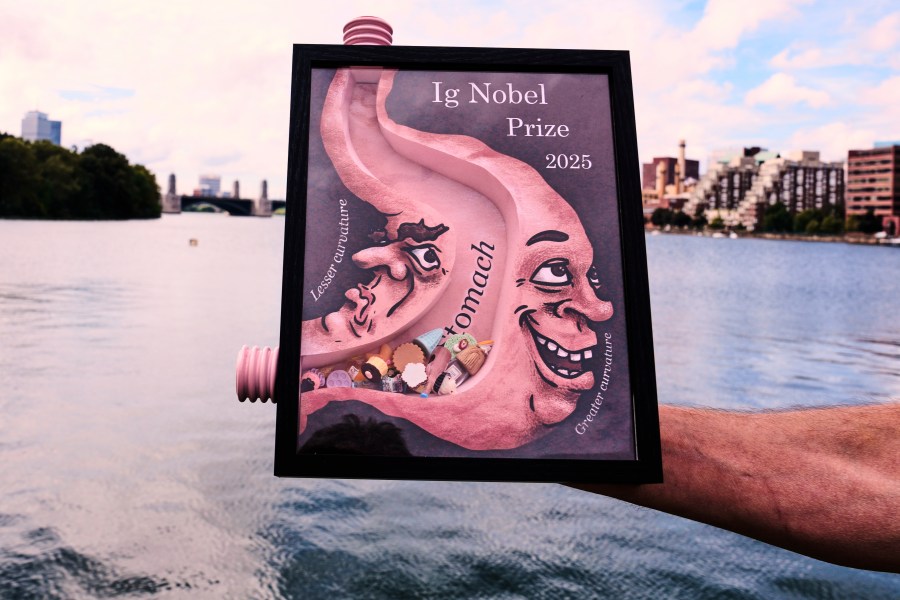BREAKING: A Japanese research team has just won the prestigious Ig Nobel Prize for their unconventional study on whether painting cows with zebra-like stripes can reduce fly bites. The winners were announced on October 5, 2023, during a lively ceremony at Boston University, where they were celebrated for their humorous yet impactful scientific inquiry.
Researchers led by Tomoki Kojima conducted an experiment by applying tape to Japanese beef cows and spray painting them with white stripes. The results were significant: cows with stripes attracted fewer flies and appeared less stressed, marking a potential breakthrough in animal welfare practices. “When I did this experiment, I hoped that I would win the Ig Nobel. It’s my dream. Unbelievable. Just unbelievable,” Kojima exclaimed.
The Ig Nobel Prizes honor bizarre yet thought-provoking scientific achievements across ten categories. This year’s ceremony also recognized a European team for discovering that alcohol can enhance a person’s ability to speak foreign languages and a researcher who spent decades studying fingernail growth.
Marc Abrahams, the master of ceremonies, highlighted the whimsical nature of these studies, stating, “
Every great discovery ever, at first glance, seemed screwy and laughable. The Ig Nobel Prizes celebrate ALL these discoveries, because at the very first glance, who really knows?
”
The 35th annual ceremony was filled with entertainment, including a mini-opera themed around digestion, capturing the audience’s attention while celebrating the quirky side of scientific inquiry. Winners were jokingly pelted with paper airplanes, and they mingled with actual Nobel laureates such as Esther Duflo and Eric Maskin, adding a layer of prestige to the lighthearted event.
Among the other unique studies presented were findings from an Indian team exploring the impact of foul-smelling shoes on user experience and a joint US-Israel study assessing whether consuming Teflon could increase food volume.
Notably, a Colombian researcher, Francisco Sanchez, shared insights about a study on drunken bats, revealing that these creatures suffered impaired flying and echolocation after consuming alcohol-laden rotten fruit. Sanchez stated, “
They actually got drunk similar to what happens to us. When you take some ethanol, you move slower and your speech is impaired.
”
This year’s Ig Nobel ceremony is a reminder that science can be both enlightening and entertaining. The findings, though humorous, may inspire real-world applications, such as innovative methods to improve livestock health. The event serves as a platform for researchers to showcase their creativity while engaging the public in the joy of discovery.
As the scientific community continues to explore both serious and lighthearted inquiries, the impact of these findings remains relevant, urging further exploration into unconventional solutions for everyday problems. The next steps for the zebra cow experiment could lead to more extensive trials, potentially transforming agricultural practices globally.
Stay tuned for further updates on these remarkable studies and the ongoing interplay between humor and science that keeps us all thinking outside the box.





































































